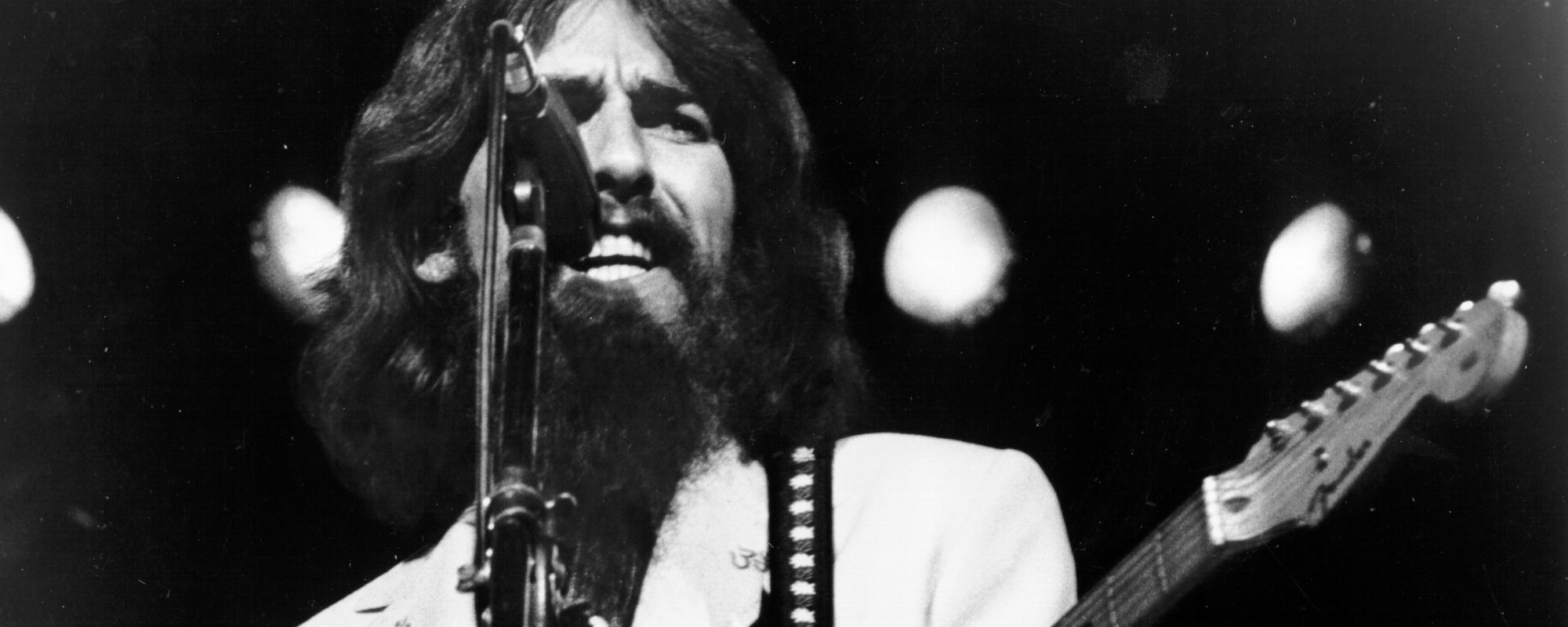On January 2, 1969, The Beatles began working on what would become their 12th and final album together, Let It Be, along with its accompanying film. Coincidentally, two years later, on January 2, 1971, George Harrison‘s third solo album, All Things Must Pass, went to No. 1 on the Billboard 200, where it remained for seven weeks.
Videos by American Songwriter
The Fab Four’s Finale
By the time they began recording Let It Be, relations among the four Beatles had already fractured since their sessions for The White Album in 1968. Working around the friction within the band, Paul McCartney, John Lennon, Ringo Starr, and Harrison arrived at Twickenham Film Studios on January 2 to begin rehearsing for a TV show special, Get Back, which would show the band rehearsing and working out songs together in a very back-to-basics structure.
The project eventually transitioned into the film, Let It Be, directed by Michael Lindsay-Hogg, along with the album.
“These were musicians knuckling down to work and having affectionate times and sometimes getting annoyed,” said Lindsay-Hogg in 2021 of a scene where McCartney and Harrison are disagreeing over Harrison’s guitar part. “I saw that as a discussion between artists having a small disagreement. I wanted it in the movie because it was a true interaction but then suddenly it became, ‘That’s why they broke up.’”
[RELATED: On This Day: The Beatles Went to No. 1 with ‘The White Album’]
Just a little more than a week into their Twickenham sessions Harrison walked out on January 10 and temporarily left the band to break free of all the in-fighting and power struggles during recording.
“What happened was, when we got in there, it showed how the break-up of a group works,” said McCartney. “We didn’t realize it but we were breaking up as it was happening.”
Let It Be was released on 8 May 1970, a month after the band’s public break up, and went to No. 1 in several countries, including the U.S.
The Beatles Go Solo
On April 9, 1970, McCartney made the band’s split publicly official by revealing that he was no longer working with the other members of The Beatles. By this time, the group was in the midst of litigation with one another, after McCartney sued the band for its dissolution, and each member had already moved deeper into their solo careers.
In 1970, McCartney released his namesake debut solo album, McCartney, while Lennon released his debut John Lennon/Plastic Ono Band, and Starr also shared his first solo effort Sentimental Journey.
By the end of the year, on November 27, 1970, George Harrison also released All Things Must Pass.
‘All Things Must Pass’
All Things Must Pass was Harrison’s first album since the demise of The Beatles, and followed his previous releases, including his 1968 debut Wonderwall Music and Electronic Sound in 1969. Many of the songs on All Things Must Pass, including the title track and “Hear Me Lord,” were initially songs Harrison had written for The Beatles but were dismissed by his former bandmates.
The album featured a cast of musicians, including Starr, along with Eric Clapton, Peter Frampton, Billy Preston, Pete Drake, and Gary Wright, along with a Harrison co-write with Bob Dylan on the opening track “I’d Have You Anytime.”
Harrison’s third album topped the Billboard 200 chart and also earned him his first No. 1 single. On December 26, 1970, “My Sweet Lord” went to No. 1 on the Billboard Hot 100, making him the first member of The Beatles to top the charts as a solo artist, where he remained for four weeks.
Photo: Michael Ochs Archives/Getty Images












Leave a Reply
Only members can comment. Become a member. Already a member? Log in.